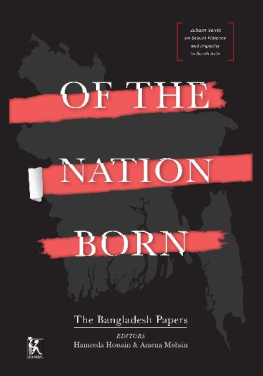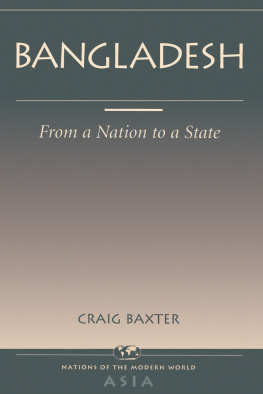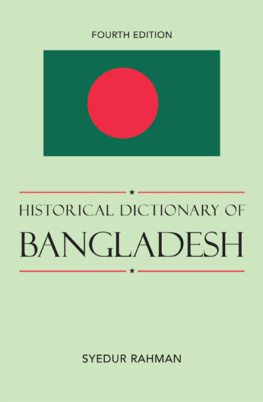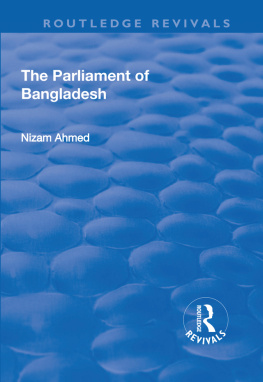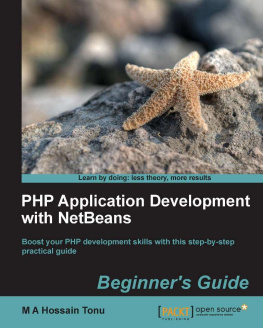Of the Nation Born
The Sexual Violence and Impunity in South Asia research project (coordinated by Zubaan and supported by the International Development Research Centre) brings together, for the first time in the South Asian region, a vast body of research on this important, and yet silenced, subject. Six country volumes (one each on Bangladesh, Nepal, Pakistan, Sri Lanka, and two on India, as well as two standalone volumes) comprising over 50 research papers and two book-length studies, detail the histories of sexual violence and look at the systemic, institutional, societal, individual and community structures that work together to ensure that impunity for perpetrators is more or less inbuilt. As many of the authors argue, the very nature and conditions of sexual violence in the South Asian region lend themselves to a silencing process, or, at a minimum, a reluctance to address it head on, something that may at least partially explain why accountability for sexual violence remains such a distant horizon.
This volume focuses on Bangladesh, a nation born in 1971, in a birth that was as marked by bloodshed as it was by sexual violence. The history of widespread sexual violence, and incidents of sexual slavery, as well as the absence of accountability for the perpetrators, is by now well known. The essays here address the structural dynamics of impunity at the individual and societal levels, looking not only at the conditions that go into its creation, but also the elements that fuel it. They ask what helps it to become so embedded and point to its human, global and national costs. Together they explore the ways in which the womens movement and feminist practice have worked to demand accountability and recognition for the victims and survivors of sexual violence, challenging the impunities embedded in the patriarchal structures of Bangladeshi society. In doing so, they bear witness to the continuing efforts of womens groups in Bangladesh to give this crucial issue the attention that it deserves, for without that, justice for victims and survivors will remain elusive.
Editor: Hameeda Hossain, Amena Mohsin
Contributors: Shahidul Alam, Kabita Chakma, Bina DCosta, Ishita Dutta, Meghna Guhathakurta, Faustina Pereira, Dina M. Siddiqi
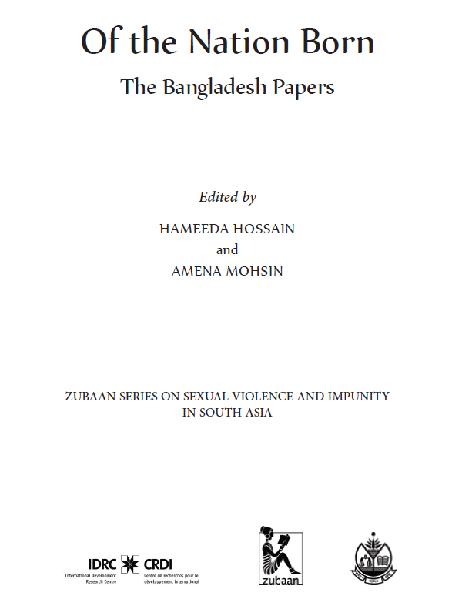
Zubaan
128 B Shahpur Jat, 1 st floor
NEW DELHI 110 049
Email:
Website: www.zubaanbooks.com
First published by Zubaan Publishers Pvt. Ltd 2016
Copyright Zubaan Publishers Pvt. Ltd 2016
All rights reserved
This project was undertaken with financial support provided by the International Development Research Centre, Canada
10 9 8 7 6 5 4 3 2 1
eBook ISBN: 9789385932076
Print source ISBN: 9789384757793
This eBook is DRM-free.
Zubaan is an independent feminist publishing house based in New Delhi with a strong academic and general list. It was set up as an imprint of Indias first feminist publishing house, Kali for Women, and carries forward Kalis tradition of publishing world quality books to high editorial and production standards. Zubaan means tongue, voice, language, speech in Hindustani. Zubaan publishes in the areas of the humanities, social sciences, as well as in fiction, general non-fiction, and books for children and young adults under its Young Zubaan imprint.
Typeset in Adobe Arabic 14.5/14.5 by Jojy Philip, New Delhi 110 015
Printed and bound at Raj Press, R-3 Inderpuri, New Delhi 110 012
Hello Reader!
This is just a note to let you know that all Zubaan ebooks are completely free of digital rights management (that is, DRM-free), so that you can read them on any of your devices and download them multiple times. We believe that this makes for a more trouble-free and pleasurable reading experience. To be fair to our authors and to enable us to continue publishing and disseminating their work, we appeal to you to buy copies of this ebook rather than share or give it away free. Thank you for your support and cooperation. And happy reading!
Contents
Urvashi Butalia, Laxmi Murthy and Navsharan Singh
Kabita Chakma
Hameeda Hossain and Amena Mohsin
Meghna Guhathakurta
Dina M. Siddiqi
Amena Mohsin
Bina D'Costa
Faustina Pereira
Ishita Dutta
Hameeda Hossain
Shahidul Alam
Bina D'Costa
Interviews, Case Studies and Narratives
Qurratul Ain Tahmina
Suraiya Begum
Qurratul Ain Tahmina
Keya Chowdhury
Ilira Dewan
Maleka Khan
Zubaan Series on Sexual Violence
and Impunity in South Asia
An Introduction
URVASHI BUTALIA, LAXMI MURTHY AND NAVSHARAN SINGH
T he Sexual Violence and Impunity project (SVI) is a three-year research project, supported by the International Development Research Centre (IDRC), Canada, and coordinated by Zubaan. Led by a group of nine advisors from five countries (Bangladesh, India, Nepal, Pakistan, Sri Lanka), and supported by groups and individuals on the ground, the SVI project started with the objectives of developing and deepening understanding on sexual violence and impunity in South Asia through workshops, discussions, interviews and commissioned research papers on the prevalence of sexual violence, and the structures that provide impunity to perpetrators in all five countries.
The project began with some key questions and concerns. We noted that recent histories and contemporary political developments in South Asia had shown an exponential increase in sexual violence, particularly mass violence. And yet, even as such violence had increased across the region, so had the ever-deepening silence around it.
Why, for example, had the end of 25 years of violent conflict in Sri Lanka in May 2009 not resulted in an open and frank discussion about sexual violence as a weapon of war? Why had the International Crimes Tribunal (Bangladesh) of 2009 set up to investigate and prosecute suspects for the genocide committed in 1971 by the Pakistan Army and their local collaborators, paid such little attention to the question of mass rape, despite it being widely acknowledged that it had happened and many women having spoken out about it. Why did discussions on Kashmir in India or Swat in Pakistan, simply ignore the question of sexual violence? Why was caste violence, violence against sex workers and men and transgender persons barely spoken about?
Nor was silence the only issue here. Crucial to maintaining the silence wasand isthe active collusion of States in providing impunity to perpetrators, sometimes under the guise of protective laws and special powers to the armed forces, at others under the guise of nationalism. So heavily were the odds stacked against women that, until recently, very few had dared to speak out. Backed by culture, and strengthened by the State, and often with the active collusion of non-state actors, impunity then, remained largely unchallenged.
We asked ourselves if these conditions were specific to the South Asian region. Elsewhere in many parts of the world, we noted, rape was increasingly being discussed and accepted, not only as a weapon of war, but also as a crime against humanity and as an instrument of genocide. The 1998 Akeyesu judgment by the International Criminal Tribunal for Rwanda (ICTR) provided a clear definition of rape and delineated its elements as a crime against humanity and as an instrument of genocide. In the International Criminal Tribunal for the former Yugoslavia (ICTY) jurisprudence pioneered the approach that used acts of rape and other forms of sexual violence to include elements of other international crimes such as torture, enslavement, and persecution, which previously had not been litigated in the context of gender violence.



